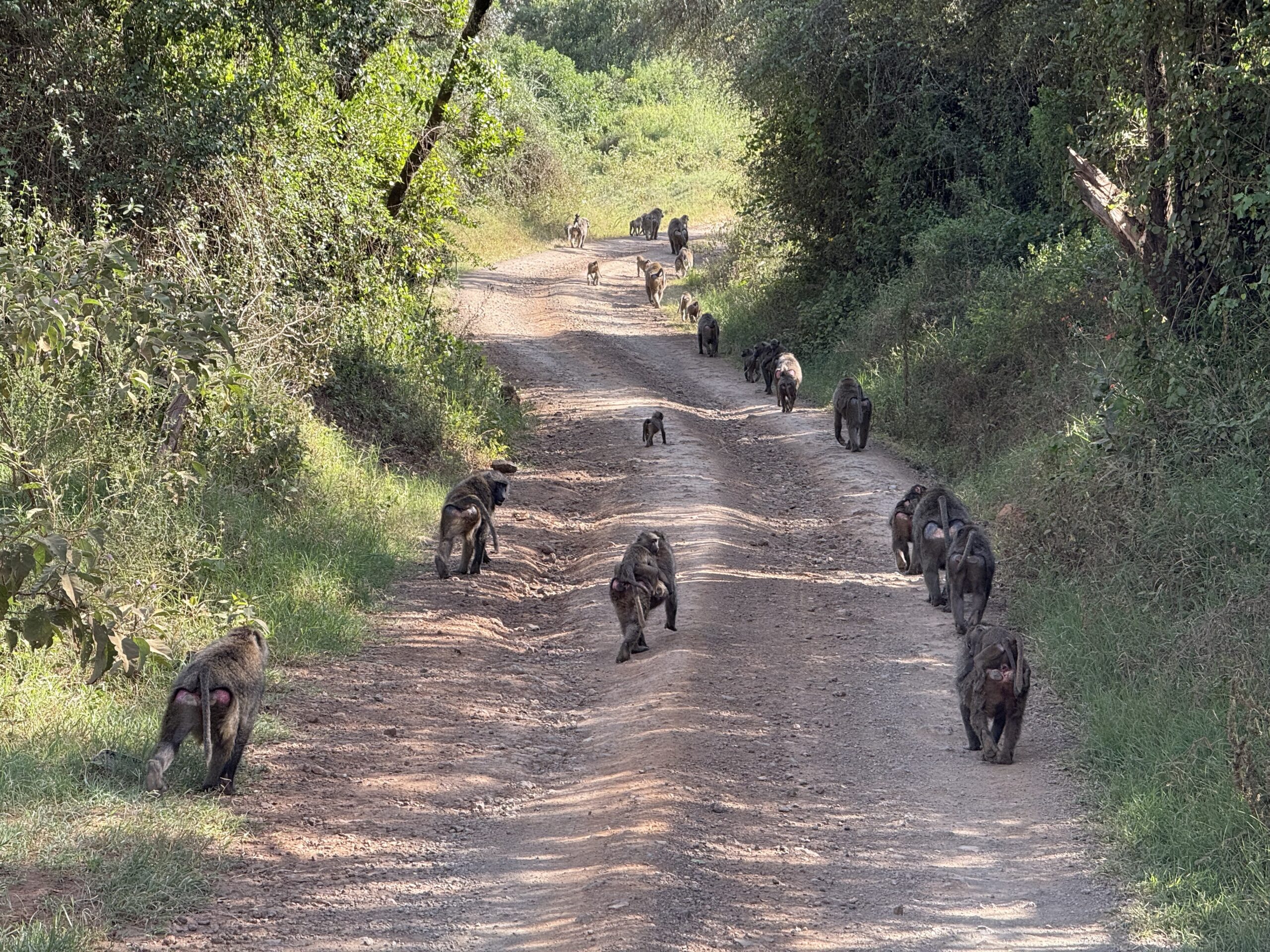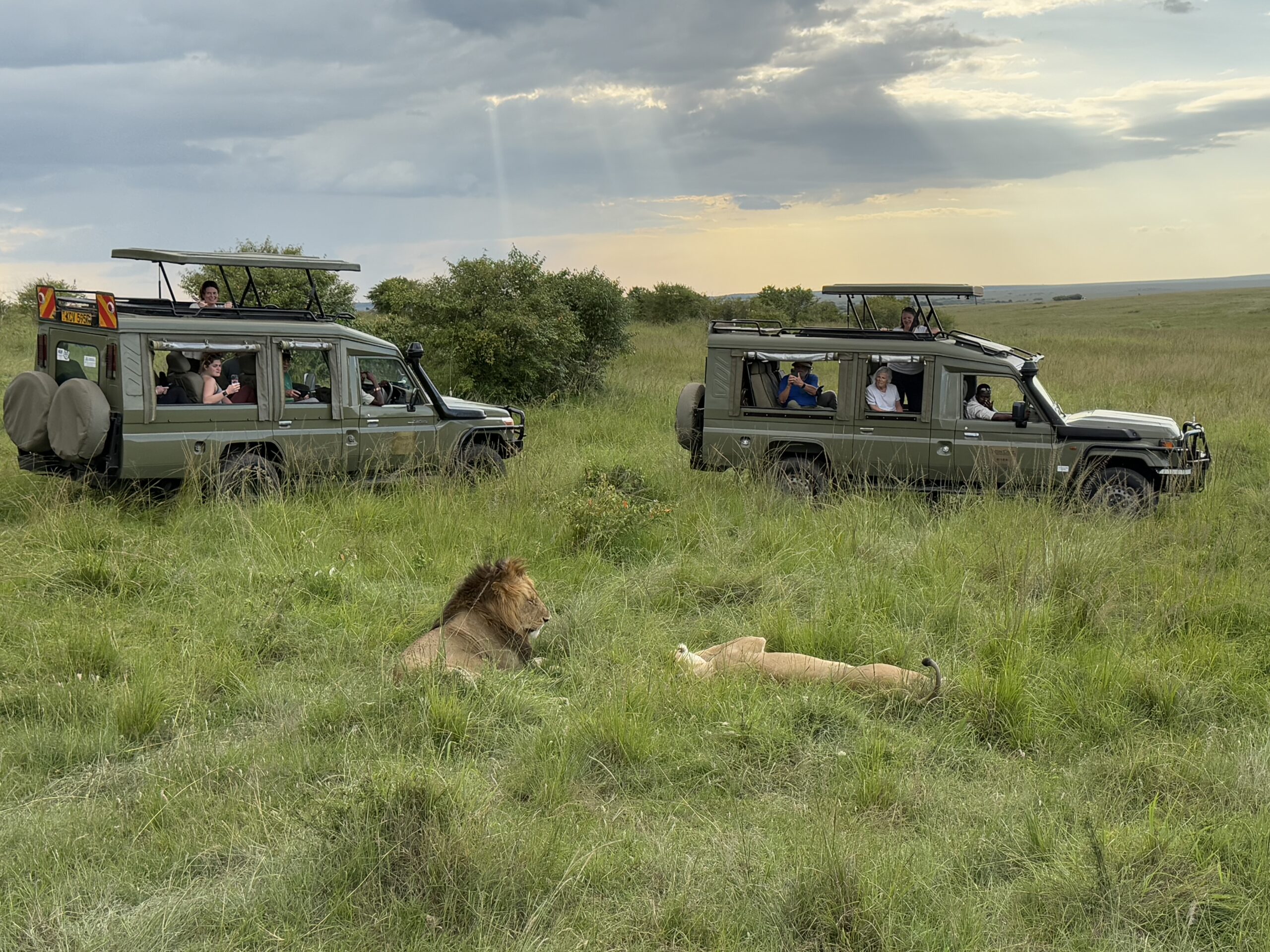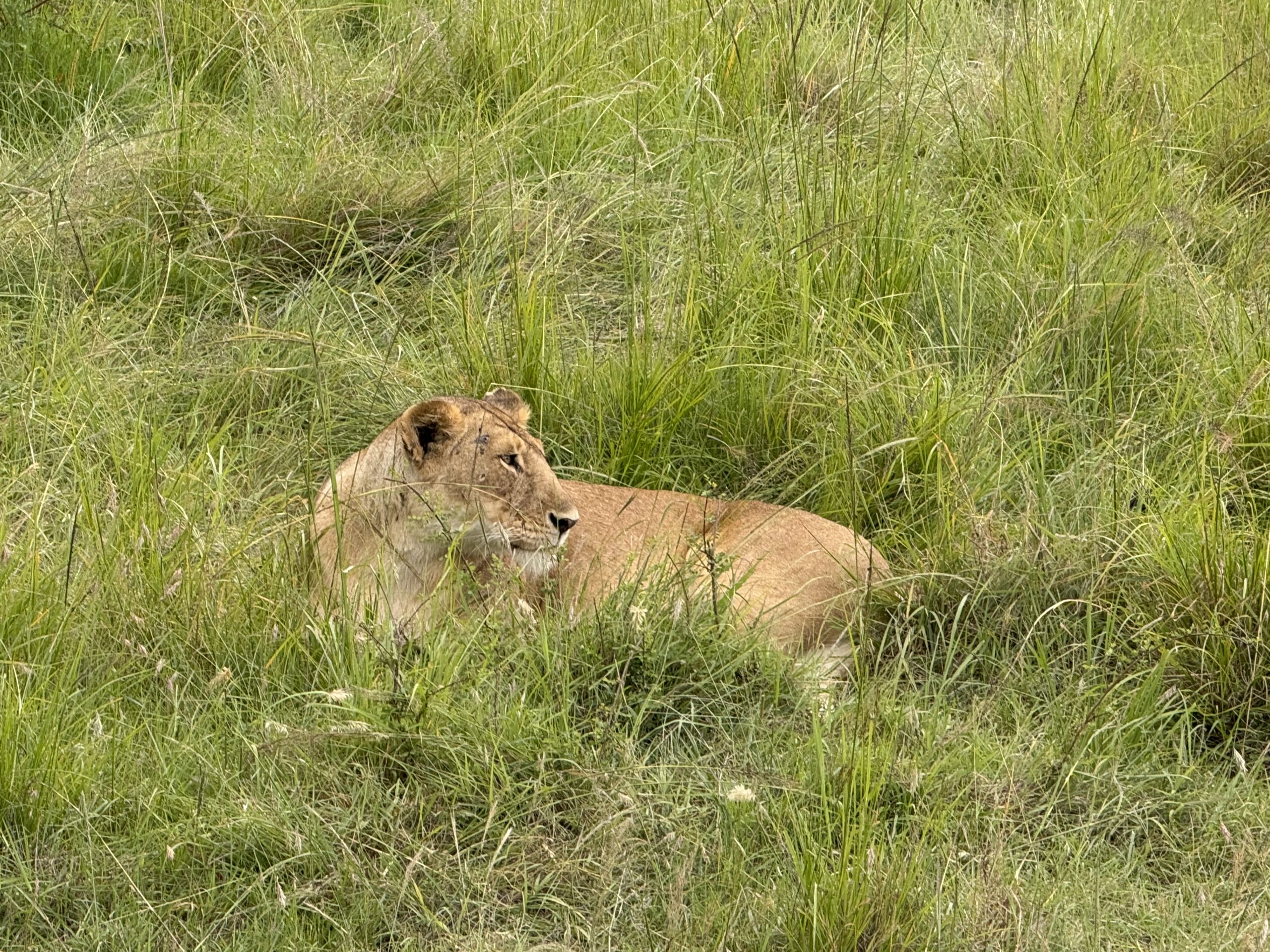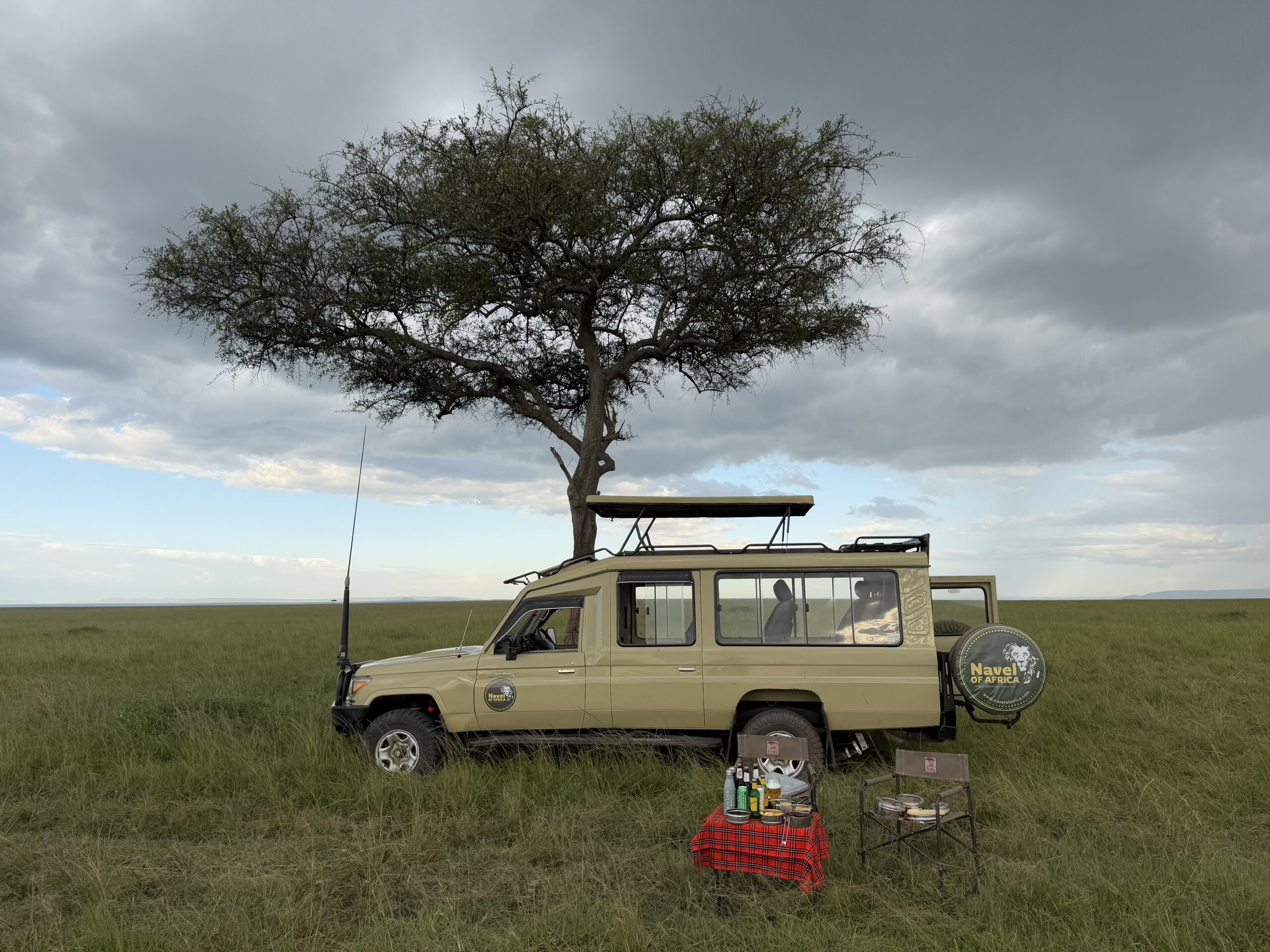




Safety, Costs, and Personal Experience
Planning a solo safari to Tanzania? You’re not alone. As a Tanzanian guide who has led numerous solo travelers through the Serengeti, Ngorongoro, and beyond, I can tell you that solo safaris are increasingly common – and absolutely achievable with proper planning.
This comprehensive guide addresses the unique considerations solo travelers face: safety concerns, cost implications, social dynamics, and practical strategies for making your solo Tanzania safari successful and memorable.
Can You Really Safari Solo in Tanzania?
Yes, absolutely. Tanzania is one of Africa’s safest and most accessible solo safari destinations. However, “solo safari” has different meanings that affect your experience:
Solo Traveler on Private Safari: You book a private safari vehicle and guide, traveling alone but with professional support throughout.
Solo Traveler on Group Safari: You join scheduled group departures with other travelers, sharing costs and experiences.
True Independent Travel: You arrange transport, accommodations, and park visits yourself without guide services (rarely recommended for first-time visitors).
Most solo travelers choose option one or two, balancing independence with safety and wildlife expertise.
Safety Considerations for Solo Safari Travelers
Tanzania is generally very safe for tourists, but solo travelers should understand specific considerations:
Personal Safety
Tanzania ranks among Africa’s safest countries for tourism. Violent crime against tourists is rare, especially in safari areas. The tourist infrastructure in Northern Circuit (Arusha, Serengeti, Ngorongoro) is well-established and secure.
Realistic Risks:
- Petty theft in urban areas (pickpocketing in busy markets)
- Overcharging by unofficial taxi drivers
- Wildlife danger if rules aren’t followed
- Minor scams targeting tourists
Risk Mitigation:
- Use registered safari companies with verifiable reviews
- Book airport transfers in advance
- Keep valuables secure in hotel safes
- Follow guide instructions around wildlife religiously
Solo Female Travelers:
Tanzania is relatively safe for women traveling alone. I’ve guided many
solo female travelers: who felt comfortable throughout their safari. That said, standard precautions apply: avoid walking alone after dark, dress modestly in towns, and maintain awareness of surroundings.
Wildlife Safety
Wildlife danger is identical whether you’re solo or in a group. The key is following your guide’s instructions without exception.
Critical Rules :
- Never exit vehicle during game drives unless guide explicitly permits
- Maintain minimum distances from animals
- Never attempt to touch or feed wildlife
- Stay inside tents at night in camping areas
- Follow all park regulations
Your guide’s experience keeps you safe. Professional guides understand animal behavior and know when situations are dangerous.
Health and Medical Considerations
Pre-Trip Health Prep:
- Consult travel medicine specialist 6-8 weeks before departure
- Malaria prophylaxis recommended for Tanzania
- Ensure routine vaccinations are current
- Yellow fever vaccination required if arriving from endemic countries
- Purchase comprehensive travel insurance including medical evacuation
Solo-Specific Health Concerns
As a solo traveler, minor illness affects you more since you lack companions to help. Pack a comprehensive first aid kit, bring extra prescription medications, carry rehydration salts, and know your safari operator’s emergency protocols.
Most safari lodges have basic medical facilities, and serious emergencies can be evacuated to Arusha or Nairobi hospitals.
Want safety advice specific to your situation? Contact David for honest assessment of your safari plans and safety recommendations.
Email: david@navelofafrica.com | WhatsApp: +255 743 114 934
The Cost Reality: Solo Safari Pricing
Solo safari travel is more expensive per person than traveling with companions because certain costs cannot be shared.
Cost Breakdown for Solo Travelers
Private Safari Vehicle and Guide (Non-Sharable):
- 4×4 Land Cruiser rental: $150-220 per day
- Professional guide: $80-120 per day
- Fuel: $30-50 per day
Total daily vehicle costs: $260-390
When couples or groups share these costs, per-person expense drops dramatically. Solo travelers bear the full amount.
Example Cost Comparison (7-day mid-range safari)
Solo Traveler:
- Vehicle/guide (7 days): $2,100
- Accommodation (single supplement): $2,800
- Park fees: $592
- Meals: $350
- Total: $5,842
Two People Sharing:
- Vehicle/guide (7 days): $2,100 ($1,050 per person)
- Accommodation (sharing): $3,500 ($1,750 per person)
- Park fees: $1,184 ($592 per person)
- Meals: $700 ($350 per person)
- Total per person: $3,742
Solo travelers pay approximately 55-60% more than travelers sharing costs.
Single Supplement Charges
Most lodges and camps charge single supplements for solo travelers occupying double rooms – typically 50-100% additional cost. A room priced at $300 per night for two people might cost $450-500 for one person.
Strategies to Reduce Single Supplements:
- Some lodges waive supplements during low season
- Budget camping has minimal single supplements
- A few properties offer dedicated single rooms at better rates
- Group safari options eliminate vehicle cost issues
Ways Solo Travelers Can Reduce Costs
Join Small Group Safaris: Scheduled group departures (maximum 6-7 people) share vehicle and guide costs. Your per-person price drops to similar levels as couples, though you sacrifice complete itinerary flexibility.
Travel During Low Season: April-May offers 30-50% accommodation discounts and better single supplement waivers.
Mix Budget and Mid-Range: Camp some nights, lodge others. This hybrid approach maintains comfort while controlling costs.
Shorter Safari Duration: Instead of 10 days private, consider 6-7 days to reduce total cost while maintaining quality.
Partner with Other Solo Travelers: Some operators match solo travelers willing to share vehicle and accommodations, splitting costs.
Choose Strategic Parks: Focus on Tarangire and Ngorongoro with shorter Serengeti time. Park fees are lower, and these parks deliver incredible wildlife.
Honest Assessment: Solo safari costs more. Budget $4,000-6,000 for week-long mid-range Northern Circuit safari versus $3,000-4,000 per person for couples. However, the experience value remains high.
Social Dynamics: Will You Be Lonely?
This depends on your personality and chosen safari style.
Private Solo Safari
Social Reality: You’ll spend days with your guide (who becomes a companion of sorts) and interact with lodge/camp staff. At communal dining lodges, you’ll meet other travelers. In luxury lodges with private dining, interaction is limited.
Advantages :
- Complete itinerary control
- Move at your own pace
- Deeper guide relationship
- No compromising on preferences
- Excellent for introverts or those seeking solitude
Potential Downsides :
- Can feel isolating for very social people
- No one to share excitement of sightings
- Dining alone every meal (though staff are often friendly)
- All downtime alone
My Observation : Most solo travelers on private safaris love the experience. The guide becomes a knowledgeable companion, and wildlife viewing is so engaging that loneliness rarely surfaces. Evening alone time feels restful rather than lonely after intense days.
Group Safari
Social Reality: You’re constantly with 4-6 other travelers, sharing vehicle, meals, and experiences. Friendships often develop quickly in this shared adventure setting.
Advantages: :
- Built-in social interaction
- Shared excitement over wildlife
- Potential lasting friendships
- Stories and laughter during drives
- Less expensive than private safari
Potential Downsides: :
- Less itinerary flexibility
- Personality conflicts possible
- Compromise on pace and interests
- Fixed departure dates
- Less one-on-one time with guide
My Observation
Group safaris work wonderfully for social solo travelers. The shared experience creates bonds quickly, and I’ve seen many solo travelers form friendships that extend beyond the safari.
Balancing Solitude and Connection
Strategies for Social Connection on Solo Private Safari:
- Choose lodges with communal dining areas
- Join optional group activities (cultural visits, walking safaris)
- Spend evenings in lodge common areas
- Ask guide about local culture and life (most enjoy sharing)
- Stay connected with home via lodge WiFi when needed
Strategies for Privacy on Group Safari:
- Bring good headphones for personal time
- Carry a book for downtime
- Communicate when you need space
- Choose tent/room away from main areas if possible
Practical Tips for Solo Safari Success
Pre-Departure Planning
Choose Reputable Operator: Research thoroughly, read reviews, verify licensing. Solo travelers have no companions to help if things go wrong, so operator reliability is critical.
Clear Communication: Discuss your expectations, concerns, and preferences clearly before booking. Good operators accommodate solo traveler needs.
Comprehensive Insurance: Medical evacuation, trip cancellation, and baggage coverage. Solo travelers lack companions to help navigate emergencies.
Share Itinerary: Provide detailed itinerary to family/friends including accommodation names, guide contact, and daily locations.
Packing Considerations
Solo-Specific Items:
- Portable door lock/door wedge for budget accommodations
- Extra phone power bank (no companion to borrow from)
- Photocopy of important documents separate from originals
- Larger first aid kit than you’d carry in a group
- Entertainment for downtime (books, downloaded content)
During Safari
Building Rapport with Your Guide : Your guide is your primary companion. Ask questions, show interest in their knowledge, be respectful and friendly. Most guides appreciate engaged clients and the relationship enriches your experience.
Photography Help: Solo travelers lack someone to photograph them in safari settings. Ask your guide – most are happy to take photos of you with wildlife backdrops or at scenic viewpoints.
Flexibility: Solo travel’s greatest advantage is complete flexibility. See a leopard? Stay as long as you want. Tired one morning? Sleep in. Embrace this freedom.
Safety Vigilance: Without companions watching your back, maintain awareness. Secure valuables, follow safety advice, and trust your instincts.
Evening Strategies
Safari days end early (typically 6-7 PM). Here’s how solo travelers fill evening hours:
- Read by lodge fireplace or on your private deck
- Edit and organize daily photos
- Journal about experiences while fresh
- Engage with other guests in communal areas
- Enjoy sunset from your accommodation
- Early sleep (5:30 AM wake-ups make this appealing)
Most solo travelers find evening downtime refreshing rather than boring after intense wildlife days.
Solo Female Traveler Specific Advice
I’ve guided many women traveling alone through Tanzania. Their experiences have been overwhelmingly positive, but specific considerations apply:
Cultural Context
Tanzania is a conservative, predominantly Christian country (with significant Muslim population in coastal areas). Modest dress is appreciated, especially outside tourist areas.
Solo Female Traveler Specific Advice :
- Shoulders covered in towns and villages
- Knees covered (pants or knee-length skirts/shorts)
- Safari clothing is casual and practical – no special considerations needed
- Zanzibar (if extending): cover shoulders and knees in Stone Town
Interactions and Attention
Solo female travelers may receive more attention than those in groups or couples. This is usually friendly curiosity rather than threatening, but can feel uncomfortable.
Managing Unwanted Attention :
- Wear wedding ring (real or fake) – signals you’re “taken”
- Mention husband/partner if asked about relationship status
- Stay in tourist-designated areas in cities
- Use registered taxis, not informal drivers
- Be friendly but firm in declining unwanted interaction
Accommodation Safety:
- Request ground floor rooms in lodges (easier emergency exit)
- Use door locks and security chains
- Keep valuables in hotel safe
- Trust instincts – if accommodation feels unsafe, request different room or leave
Guide Relationship
Professional guides maintain appropriate boundaries. If you experience inappropriate behavior, report immediately to the safari company. Reputable operators take this seriously.
My Commitment: Navel of Africa guides undergo training in professional conduct. Any reported inappropriate behavior results in immediate investigation and action.
Solo female travelers: want to discuss specific safety concerns? Contact David for honest conversation about what to expect.
Email: david@navelofafrica.com | WhatsApp: +255 743 114 934
Advantages of Solo Safari Travel
Despite higher costs, solo safari offers unique benefits:
Complete Control: Your schedule, your preferences, your pace. Want to photograph that lion for 90 minutes? Done. Need a rest afternoon? Take it.
Deeper Immersion: Without companions to talk to, you observe more, absorb more, and often develop stronger connection to the environment.
Personal Growth: Solo travel builds confidence, self-reliance, and creates profound personal memories.
Guide Relationship: One-on-one time with your guide means more learning, better communication, and often deeper cultural exchange.
Flexibility: Change plans based on wildlife movements, weather, or simply your mood without group consensus.
Transformative Experience: Many solo travelers report safari as life-changing in ways group travel doesn’t match.
Disadvantages to Consider Honestly
Cost: Significantly more expensive than traveling with companions.
Shared Experiences: No one to immediately share excitement when you see a leopard or witness a lion hunt.
Photography: No one to photograph you in these incredible settings (though guides help).
Safety Net: No companion to help if you get sick or need assistance.
Decision Fatigue: Every choice is yours alone – sometimes nice to share decision-making.
Group Safari Alternative
If cost is prohibitive for private solo safari but you want the Tanzania experience, small group safaris offer excellent alternative:
Small Group Benefits:
- Significantly lower cost (often 40-50% less than private)
- Built-in social interaction
- Shared excitement
- Fixed departure dates simplify planning
- Still excellent wildlife viewing and guiding
Small Group Considerations:
- Less flexibility
- Accommodate group preferences
- Fixed itineraries
- Predetermined accommodation
Many operators offer guaranteed departures for solo travelers joining groups. This eliminates uncertainty of whether the trip will operate.
My Honest Recommendation
Solo safari in Tanzania is absolutely achievable, safe, and rewarding. Whether it’s right for you depends on:
Choose Private Solo Safari If:
- Budget accommodates higher cost
- You value flexibility and control highly
- You’re comfortable with solitude
- You want a personalized experience
- You’re traveling during busy season when group safaris book up
Choose Group Safari If:
- Budget is limited
- You’re very social and want companions
- You prefer structured itineraries
- You want to meet other travelers
- You’re open to compromise and flexibility
My Personal Observation: Solo travelers on private safaris consistently rate their experiences as exceptional. The higher cost concerns them beforehand, but afterward most say the personal nature of the experience justified the investment.
Preparing Mentally for Solo Safari
Set Realistic Expectations:
- You’ll have amazing wildlife experiences
- You’ll have some lonely moments
- You’ll feel independent and capable
- You’ll wish you had someone to share certain moments with
- You’ll appreciate the solitude at other times
Embrace Both Aspects:
Solo travel includes moments of both loneliness and liberation. Accepting this duality makes the experience richer.
Final Thoughts
Solo safari travel requires more planning, costs more money, and demands greater self-reliance than traveling with companions. It also offers unparalleled flexibility, deep immersion, and often becomes one of the most transformative travel experiences of your life.
Tanzania is well-suited for solo travelers – safe, accessible, and with excellent tourism infrastructure. Whether you choose private safari or join a group, you’ll witness extraordinary wildlife, learn from expert guides, and create memories that are entirely your own.
As a local Tanzanian guide, I welcome solo travelers and work to ensure their experiences are safe, enriching, and perfectly tailored to their comfort level. Solo doesn’t mean unsupported – it means having the freedom to craft your ideal African adventure.
Ready to plan your solo Tanzania safari?
Contact David Jangwa – Navel of Africa
📧 Email: david@navelofafrica.com
Whether you’re considering private solo safari or group options, let’s discuss what works for your budget, comfort level, and safari goals. I’ll provide honest advice about costs, safety, and realistic expectations – helping you decide if solo Tanzania safari is right for you.
About the Author :
David Michael Jangwa has guided numerous solo travelers through Tanzania, from adventurous backpackers to luxury solo travelers seeking transformative experiences. As founder of Navel of Africa, he understands the unique considerations solo travelers face and works to ensure their safaris are safe, enriching, and perfectly suited to individual comfort levels and preferences.
